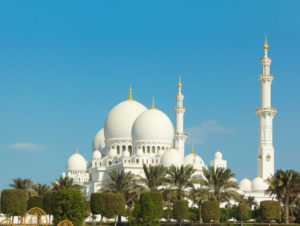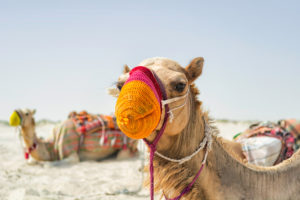
The Middle East is full of atmospheric ruins and souks, exquisitely tiled mosques, hidden cities, hilltop monasteries and desert canyons. From the King’s Highway through Jordan to The Red Sea in Egypt, The Middle East is as diverse and it is vast. With short travel distances between sights, you can see a surprising amount in a short period of time. When travelling through, there are certain traditions and cultures that you should try and follow to allow you the best possible experience.
This article explains everything you need to know about etiquette, tradition and culture in the Middle East to prepare you for your trip.
Language
Arabic is the main language of most of the region. English is widely spoken in countries such as Jordan and Lebanon, but like any other part of the world, the locals appreciate any effort you make to speak their language.
Medication
The Middle East is not just hot, it’s extremely and swelteringly hot, and you are going to get sweaty. It is difficult to wash your clothes as often as you should and you may need to frequently take long bus rides without toilet stops.
This means that if you have ever had any kind of infection or medical condition that may re-occur, bring medication for it. It will be much easier than trying to explain to a foreign pharmacist, who probably has no idea what you are talking about, and may call up four or five other members of staff to help interpret your embarrassing symptoms. Not ideal.
Greetings
When travelling in the Middle East, it is likely you will meet a range of new and interesting people. Therefore, it is important to know how to greet them politely in order to make friendships. When greeting, it is customary to say hello using the phrase ‘Assalaamu Alaykum’.
Men shake each other’s hands and often hold that shake for a long time. However, a man will not shake a woman’s hand unless she extends her arm first. If she doesn’t, it’s likely they will just greet a woman with a nod and Assalaamu Alaykum. As you get to know people, you may find they offer a kiss on the cheek and a hug, but this is only when you are very familiar with them. If you are greeted by a child, you are more than likely to receive a hug, along with an Assalaamu Alaykum.

Hospitality
People from the Middle East are very generous and giving, they are likely to often invite you for food. If they do, be sure to take a token of appreciation. You could take figs or pastries to say thank you for their hospitality.
Always be sure to remove your shoes before entering a house, some locals will provide you with slippers. Never show the bottom of your feet when you are sitting and always use your right hand when you eat your food. It is also tradition to wash your hands before you eat your meal.
Some people with encourage you to eat with your hands as part of their honoured tradition. They consider it part of their cultural identity. Be careful about complimenting décor in the local’s houses. Some will feel obliged to give you the item that you have just praised.
Affection
If you are travelling with a partner, try and avoid public affection. Just holding hands can get a few looks as it is not common for man and women to hold hands in public. You will notice during your travels that it is more common to see people of the same sex holding hands. Men will walk arm in arm with their male friends and women walk hand in hand with their female friends.
If you are travelling with a group of friends, try this. It gives you the chance to immerse in their culture and experience their customs. You are much more likely to be approached by friendly locals and it makes the travel experience much more enjoyable overall.
Travel to the Middle East requires a little more research than other destinations and there are a few expectations. But when you embrace the customs and traditions, it can be one of the most rewarding travel experiences you will ever have.
You will meet a diverse range of interesting people that you are guaranteed to never forget. You can help locals with various sponsorship programmes along with making charity donations, contributing towards sponsor an orphan campaigns or helping to fund development projects.
